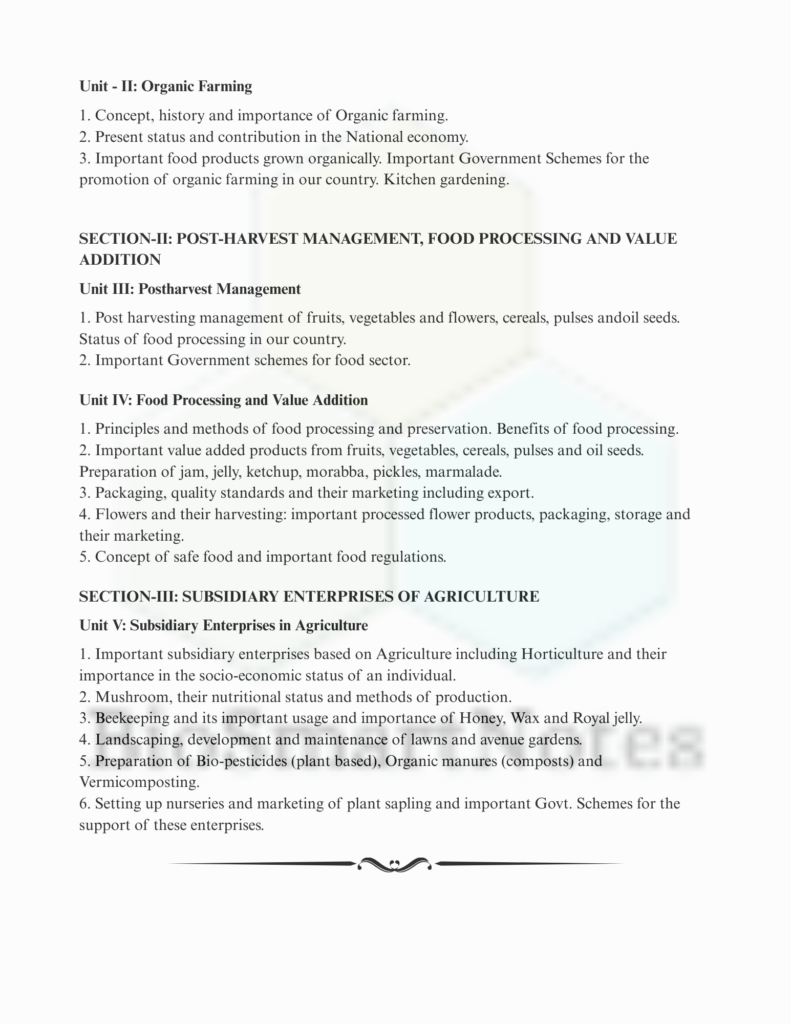Agriculture is one of the most meaningful and relevant subjects you can study, especially in a country like India, where farming plays a vital role in the economy. The Class 12 Agriculture Syllabus 2025-26 is designed to help students understand the science behind modern farming, crop production, soil management, animal husbandry, and sustainable agricultural practices.
Whether you come from an agricultural background or are simply interested in learning about the systems that feed the world, this subject offers a perfect mix of theory and practical knowledge. It also opens up many opportunities for higher studies and careers in agronomy, horticulture, agricultural engineering, and environmental science.
Why Study Agriculture in Class 12?
Agriculture is no longer limited to traditional farming methods—it has evolved into a scientific discipline that integrates biology, technology, economics, and environmental science. In Class 12, the subject equips you with knowledge about:
- Advanced crop production techniques
- Soil health and nutrient management
- Pest control and plant protection
- Irrigation methods and farm machinery
- Agribusiness and marketing
This knowledge is not only useful for students planning to pursue agricultural sciences but also for those who want to understand how food is grown, processed, and distributed.
Overview of the Class 12 Agriculture Syllabus
The board paper consists of Part A and Part B. Part A comprises questions from Employability Skills. You can download the syllabus from the link below.
Class 12 Agriculture Syllabus 2025-26


The 2025–26 syllabus is structured to offer both theoretical and applied learning. Each topic is designed to introduce you to practical farming techniques, economic planning, and modern agricultural innovations.
How to Prepare for Class 12 Agriculture
Agriculture is a subject that rewards understanding and observation more than rote learning. Here’s how you can study it effectively:
✅ Understand, Don’t Memorize
Most topics in agriculture are connected to real-world practices. Instead of memorizing terms, focus on why certain methods are used and how they impact crop yield, soil fertility, or livestock health.
✅ Study with Visual Aids
Many agricultural concepts are easier to understand through diagrams, charts, and flowcharts—especially when learning about irrigation systems, crop cycles, or farm tools.
✅ Use NCERT and Class Notes
Your NCERT textbook or state board syllabus is your most reliable source. Make sure to read it thoroughly and use classroom notes to reinforce your understanding.
✅ Prepare for Both Theory and Practical
Practical knowledge is a big part of the syllabus. Be attentive during field visits, lab experiments, or hands-on demonstrations. Understand how tools are used, how data is recorded, and how different farming techniques are applied.
✅ Make Summary Notes
Summarize each topic with key terms, steps, or concepts. This will make revision much easier before exams.
Project Work and Practical Evaluation
Class 12 Agriculture usually includes project work, practicals, or internal assessments. These may involve:
- Surveying farms and preparing a crop report
- Studying seed treatment and plant diseases
- Soil sampling and testing
- Budgeting for a small-scale farm
- Observation of irrigation techniques
These tasks allow you to apply what you’ve learned in class to real-life situations, helping you build confidence and hands-on skills.
Scoring Well in Class 12 Agriculture
Want to do well in your CBSE board exams? Follow these tips:
- Be thorough with definitions and classifications – These are often asked in both short and long answer questions.
- Practice diagrams and labeling – Neat and accurate diagrams can fetch you extra marks.
- Solve previous years’ question papers – These help you get familiar with the exam format and important topics.
- Revise consistently – Regular revision ensures you retain everything you’ve learned.
- Focus on local examples – If you can relate topics to real farming practices in your region, it will deepen your understanding and make your answers stand out.
Agriculture as a Career Path
Studying agriculture in Class 12 can lead to exciting and impactful careers. After completing your boards, you can pursue undergraduate degrees in:
- B.Sc. Agriculture
- B.Tech. Agricultural Engineering
- Horticulture and Floriculture
- Animal Science and Dairy Technology
- Agri-Business Management
- Environmental Science and Sustainability
You can also appear for entrance exams like ICAR AIEEA, state agriculture university exams, or even competitive exams that offer career options in agricultural services and research institutes.
Conclusion
The Class 12 Agriculture Syllabus 2025-26 is more than just academic content—it’s a roadmap to understanding the science behind the food we eat and the farms that grow it. With the right attitude and consistent preparation, this subject can be both rewarding and insightful.
So, whether you’re planning to study agriculture further or just want to ace your board exams, stay curious, observe nature, and make the most of the practical knowledge this subject has to offer. Agriculture connects us to our roots—quite literally—and the more we learn about it, the better we can shape the future of sustainable living.
Additional Study Materials




